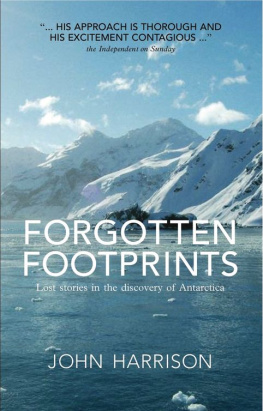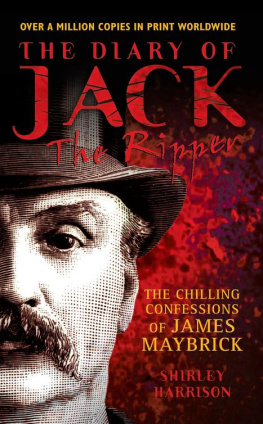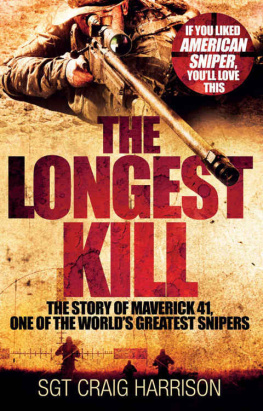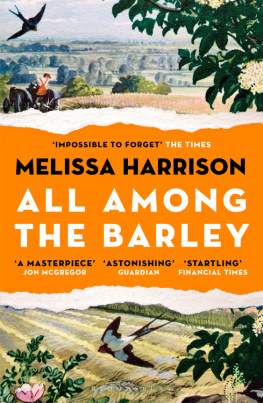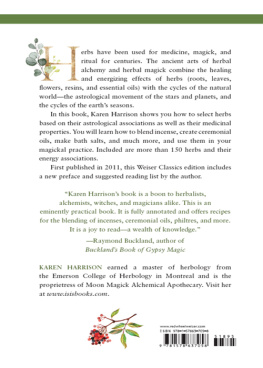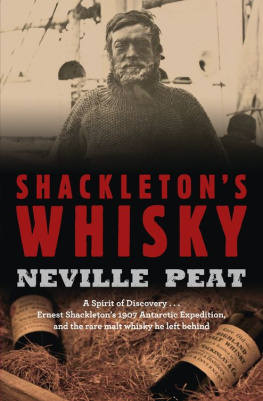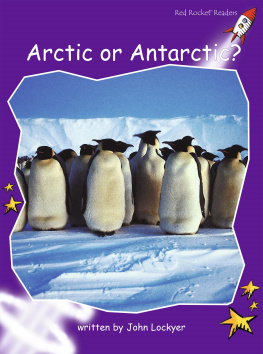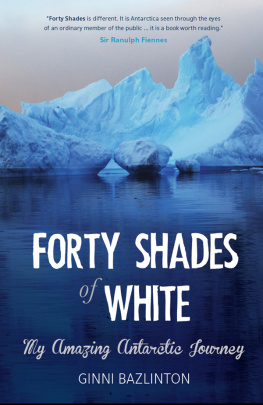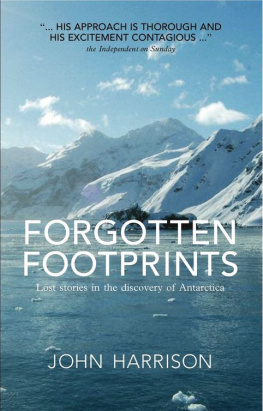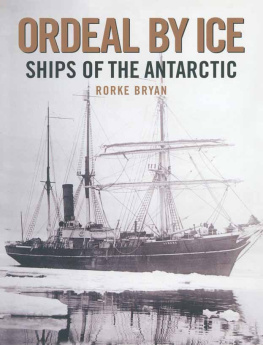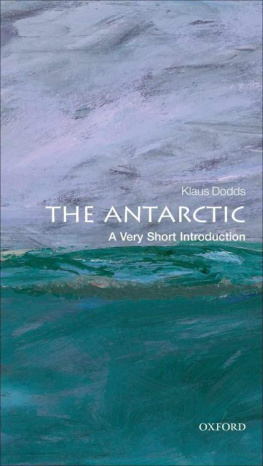The history of Antarctica is largely written in magisterial biographies and coffee-table tomes that require three polar heroes to lift them. My own collection can swiftly be piled up into a fortress against the harshest blizzard. Some of the explorers are household names, bywords for bravery and suffering. But none of those heroes discovered Antarctica: neither Cook, Scott, Shackleton nor Amundsen. You would think it was a conspiracy. The Russians will tell you Admiral Bellingshausen discovered it, Americans make a claim for a sealing captain called Nathaniel Palmer. No.
It was a Briton no one has heard of. This book tells his tale and those of the other jobbing sailors who were the first to find Antarctica, and to start to chart its shape. Theres a few heroes too, where they went to places we can visit. That is the second aim of the book: to describe the discovery and exploration of Antarctica through the places that feature in the visits of the cruise ships which now land over thirty thousand passengers a year on the last continent. It focuses on the Antarctic Peninsula down to the Antarctic Circle, the South Shetland Islands, and the fringe of the Weddell Sea; around 98% of tourists come here. There are some fine general histories but they give equal weight to expeditions and activities which took place on remote shores and in harsh interiors visited only by a handful of professional scientists and daring adventurers. This book gives the background to the things and places visitors actually see. Whether you are planning a trip, or you are just an armchair adventurer it will explain how mankind found the last continent and how we have treated it.
The Ghosts of Detaille Island
I did not want to go ashore. We had never been asked to start an Antarctic landing at midnight. Id get no sleep before and very little after. The Expedition Leader was showboating for the guests, perhaps because they included a Belgian Prince and Baron von Gerlache, the grandson of the Belgian explorer Adrien. Another guest owned tankers, six hundred of them. At Ushuaia, the Argentine gateway to Antarctica, their entourage brought the airport to a halt, as the authorities tried to find parking places for their fifteen private jets.
I climbed into my Zodiac, a five-metre-long open inflatable powerboat, and was lowered into the bay to ferry ashore the descendants of Adrien de Gerlache and their friends. The guests had spent the evening partying and celebrating their farthest south, just below the Antarctic Circle. We landed on a tiny block of rock on which stood the old British Detaille Base, and explored the huts by torchlight. The season was advanced and night had returned. The days had become mortal again; they had a beginning and an end.
Detaille Base seemed more authentic in the torchlight, and I enjoyed picking my way round. In its few years of active life from 1956 to 1959, it was lit by fitful generators and hot-handled hurricane lamps. It was a time capsule from my childhood. On a table lay the August 1953 edition of World Sports magazine. The middle-distance runner Christopher Chataway was on the cover, breasting the tape in a number 1 shirt. He was one of the athletes who would, the following spring, help Roger Bannister to run the first four-minute mile. Cupboard doors opened on tins whose primary-coloured fifties cheerfulness was corroded by rust along the joints: the war was over, custard and porridge for all. The party enjoyed their visit; their boisterousness subsided to pleasant thoughtfulness. The Prince took off his mink-lined hat and absent-mindedly stroked the fur with his thumb. They left in trickles; I ran shuttles ferrying them back across the bay.
Each time I returned to the ship the bar sounds from the lounge high above the stern were more raucous. Each shore visit was more tranquil. The Expedition Leader asked if any of the Zodiac drivers wanted to be lifted. I said I was fine. I drove the last passengers back at 03:30, leaving the empty base to its ghosts, dropping the other staff at the gangway, before pulling away to prepare the Zodiac to be lifted by crane onto the top of the rear deck. I unfolded the web of three pairs of straps, coming to a central ring, then clipped the hooks onto the shackles at the front and centre of the boat. The back ones are fixed. I stowed my backpack where it would not tangle with them when I hitched the ring to the hook. Snug in my one-piece survival suit, I balanced, on my back, on the side pontoon of the boat. Above me, in the black blanket of sky, rents worked open, and the cover began to break up. Haphazard stars appeared. The radio crackled: John, we have slight problem with anchor. When Polish officers speak English the articles disappear. Stand by fifteen minutes.
She was an old Swedish ice-breaker built for coastal patrol, launched as the Njord, the god of the sea, but renamed the Polar Star. She does not go to Antarctica now. Under the delightful Captain Jacek Mayer, who taught me to use a sextant, and whose first command was a square rigger (She is in a museum now, I am still sailing.), she hit an uncharted rock off Detaille Base in 2011 and ripped her belly open. The company went bust as she sat in a Canaries dockyard and the repair bill mounted.
Now I had turned off the 60 HP Yamaha outboard engine, I could hear the fans and motors which keep the ship alive, the tinkling party, and the Filipino sailors I had worked with for six years, Alan, Lito and Dallas, calling to each other tiredly in Tagalog. The water cooling my engine piddled into the sea. I felt the wavelets ping the rubber hull. I saw the stars brighten and then fog in the confusion of the cloudless sweep of the Milky Way: the edge of the galaxy opening up with light from times when men walked in animal skins. The ship was a solitary pool of warmth and light. I let my Zodiac drift away from her into the darkness at the edge of the bay. Her deck lights were a cluster in the sky, a constellation without a name: a new, unpredictable star sign. The bar music faded and all I could hear was the creases of ocean slipping under the boat, the cold air hosing through my throat, and the thump of my heart. The Zodiac turned slowly as she drifted, and I was the only soul alone in an empty world. The only man abroad in a continent. The last continent. But who discovered it? I didnt care. I was unspeakably happy.
James Cook (17281779)
VOYAGE I (17681771)
VOYAGE II (17721775)
VOYAGE III (17761779)
A ditch-diggers son becomes one of the greatest navigators of his own age, or any other age, and is sent out three times to look for the one land he does not believe exists.
In a locked, unlit village shop, the gangly youth eased himself out from under the counter where he had slept the night. He was the son of a farm labourer who had left Scotland when it was reduced to desolation after the crushing of the Jacobite rebellion of 171516, and moved to the straggling hamlet of Marton in Yorkshire, in north-east England. Two years later, the labourers wife gave birth to a son, James, who at eight years old was already helping his father clean ditches and cut hedges. A reputation for honest muscle earned the father a job as bailiff to the local Lord of the Manor, Thomas Skottowe, at a larger village: Great Ayton. Skottowe saw something in the boy and paid for him to attend school. To his humble parents, apprenticing James to a shopkeeper in the nearby fishing village of Staithes was a way to rise above a life of physical drudgery. But to Cook an apprenticeship to a draper- cum-grocer was just a genteel jail. One day a lady paid for goods with a brilliant silver shilling. When the shop closed, the youth read on it the letters SSC: South Sea Company. He put it in his pocket and replaced it with one of his own. The shopkeeper William Sanderson noticed it missing and accused Cook of theft. Cooks fervent denials were accepted, but Sandersons lack of trust rankled, and Cooks pocket already held the shiny promise of another world. He asked to be released from the apprenticeship to go to sea. Sanderson agreed and Cook was bound as a seaman apprentice for three years with the Quaker family of John Walker of Whitby, a town famous for its ruined monastery, its whaling, and, for me, as the port where Dracula enters England.

